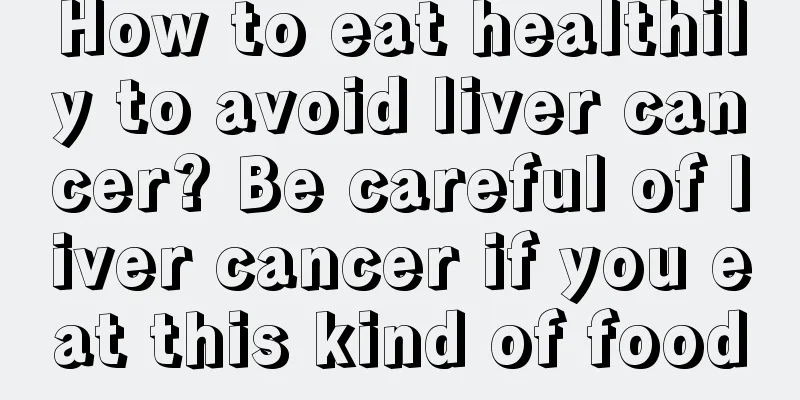The standard for esophageal cancer staging CT is like this

|
Esophageal cancer is a digestive tract disease with a relatively high incidence rate nowadays. The severity of esophageal cancer patients is often detected through CT. So what are the CT standards for esophageal cancer staging? Most people don't quite understand this. In fact, according to the CT status, esophageal cancer is divided into the following four stages. Only in the first and second stages is surgical cure most effective, so patients with esophageal cancer must seek medical treatment in time. CT examination is of great significance in the clinical staging of esophageal cancer, the selection of treatment methods and the prognosis evaluation. CT is not very useful in the diagnosis of early esophageal cancer. However, most esophageal cancers diagnosed by examination with obvious clinical signs are of the middle or late stage. In 1981, Moss et al proposed the CT staging criteria for esophageal cancer: Stage I: CT shows an intracavitary mass with no obvious thickening of the esophageal wall and no mediastinal extension or metastasis; Stage II: CT shows esophageal wall thickening of more than 5 mm, but no mediastinal extension, and the fat layer still exists; Stage III: CT shows invasion of surrounding tissues and possible regional lymph node metastasis; Stage IV: CT shows distant metastasis. For stage I and II cases, radical surgery is more effective, with a five-year survival rate of over 80%. Patients in stage IV are not suitable for surgical treatment and can only undergo radiotherapy and chemotherapy. More than half of stage III patients cannot undergo surgical treatment and should first undergo radiotherapy or chemotherapy followed by selective surgical treatment. Symptoms of esophagitis 1. Burning or pain behind the sternum A burning sensation or pain behind the sternum is the main symptom of this disease. Symptoms usually occur about 1 hour after eating and can be induced by semi-recumbent position, forward bending or strenuous exercise. The severity of the burning sensation is not necessarily consistent with the severity of the lesion. In severe esophagitis, especially in those with scarring, there may be no or only a mild burning sensation. 2. Difficulty swallowing In the early stages, intermittent dysphagia may often occur due to secondary esophageal spasm caused by esophagitis. In the later stage, due to the formation of esophageal scarring and stricture, the burning sensation and burning pain gradually decrease and are replaced by permanent difficulty in swallowing, which may cause a feeling of blockage or pain when eating solid food. 3. Bleeding and anemia If the patient suffers from esophagitis and the condition is serious, the esophageal mucosal erosion will occur, leading to bleeding symptoms, and most of the bleeding is chronic and small. If the bleeding is long-term or heavy, it can lead to iron deficiency anemia. 4. Acid reflux After meals, when lying forward, or sleeping in bed at night, acidic liquid or food refluxes from the stomach and esophagus into the pharynx or mouth. This symptom often appears before the burning sensation or burning pain behind the sternum. |
<<: Four major symptoms and treatments of red and itchy eyes
>>: Causes and treatments of itchy eyes blepharitis
Recommend
Is there a relationship between diet and colon cancer? To prevent colon cancer, you must first change your eating habits
The occurrence of colorectal cancer is closely re...
What are the benefits of Taixi acupoint massage
There are many acupoints distributed on the human...
If you have liver cancer, you may experience some digestive tract symptoms
Liver cancer may cause some digestive tract sympt...
How to preserve fresh garlic for the longest time?
Garlic is a vegetable we often eat, and it is als...
Yellow blood in saliva
Good living habits are not only beneficial to phy...
What is the reason for low urea
Urea is an important indicator that reflects a pe...
Introduction to self-treatment methods for frozen shoulder
Patients suffering from frozen shoulder are advis...
Muscular legs running can slim down your legs
Muscular legs give people a feeling of being thic...
What diseases can nuclear radiation cause
Nuclear radiation can cause a variety of health p...
Can celery and carrots be eaten together
Celery and carrots are both relatively common veg...
The most obvious symptom of pancreatic cancer is weight loss
If a person is too thin, people will certainly su...
Simple yoga moves
Yoga can promote adjustments in all aspects of th...
What to do if you have subcutaneous hemorrhage due to allergic purpura
Allergic purpura, also known as hematogenous capi...
What to do if you have blisters on your ankles
In daily life, you may encounter a situation wher...
Can I drink expired pure milk?
In fact, the shelf life of some foods is very sho...









